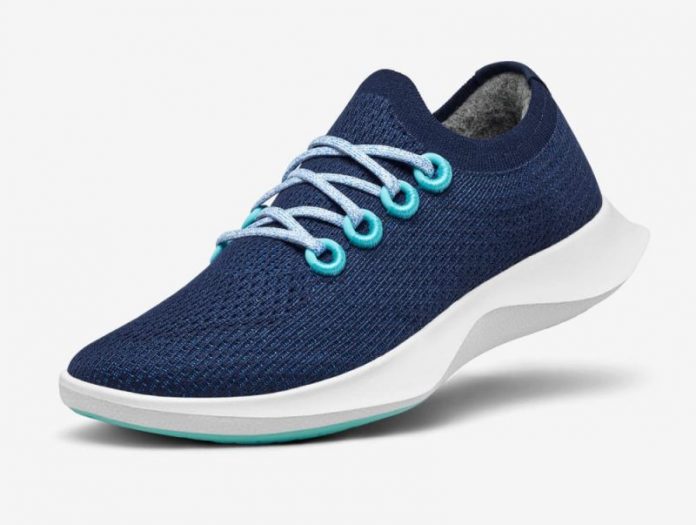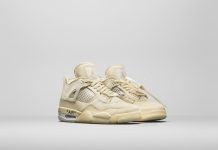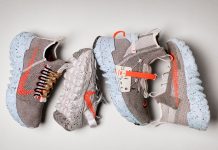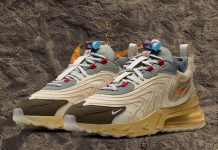
I had never heard of Allbirds until my brother bought himself a pair of Tree Runners two years ago. He explained it was a new sneaker brand with minimalistic styling and a focus on sustainability. The company was founded in 2016 by Tim Brown, a former professional footballer from New Zealand, and Joey Zwillinger, an engineer and expert in renewable materials. In a world overflowing with plastic waste, they wanted to create shoes using natural materials. They started off using merino wool, an abundant resource in New Zealand. Bringing together Brown’s vision for a sneaker and Zwillinger’s expertise, they created the Wool Runner. The sneaker’s fabric requires 60% less energy to make than synthetic materials, the laces utilize recycled plastic, and the sole is made with sugarcane, which helps reduce atmospheric carbon.

The Wool Runner was an instant hit, taking the marketplace by storm. With a growing customer base, Allbirds began branching out with new models, releasing slip-ons, high-tops, and running sneakers. The brand has since expanded beyond sneakers, now making shirts, jackets, underwear, socks, and more recently, face masks. After only a few years of business operations, the company is valued at $1.6 billion. Unlike brands that maintain secrecy about their materials, Allbirds has publicly shared the formula for their foam in the hopes that other companies will adopt similar eco-friendly soles. Such efforts contribute to the brand’s positive vibe and make consumers feel good when they purchase a pair of Allbirds for themselves.
After nearly three years of wear, my Adidas Ultra Boost sneakers had become pretty worn out. Looking to replace them, I scanned Black Friday deals on the Adidas website but didn’t find anything I really liked. I even filtered the shoes based on sustainability, but the collection was fairly disappointing. Then I remembered something. Allbirds recently introduced their own running sneaker called the Tree Dasher. Upon visiting their website, I found a navy blue and teal pair for only $125, which was cheaper than most Ultra Boosts available. Comforted by the 30 day return policy, I took a chance and purchased a pair. If I didn’t like them, I could always send them back to Allbirds, who would donate the shoes to Soles4Souls. Luckily, this was not the case.

The shoes were shipped in a single box, sealed by a single piece of tape. It is a bit odd to have the branding and size tag on the shipping box; however, I think more companies should adopt this technique because it reduces cardboard waste. The shoes were packaged with nothing more than a cardboard divider and shape holders—no wax paper in sight. This minimalism does not end with the packaging. My Tree Dashers have a solid white sole with mint green accents on the bottom, a one-piece navy blue upper, mint green eyelets, and speckled blue and white laces. Padding by the ankle and a thin layer of merino wool lining the inside of the shoes offer a level of comfort that makes socks optional. The only branding is a bird logo on the heel tab and “Allbirds” on the midsole. Customers are clearly not buying Allbirds for brand-name fashion.

The shoes were a bit stiff right out of the box, but they have become significantly more comfortable after wearing them on the treadmill a few times. The sock-like fit provides enough support to make the shoelaces unnecessary. I purchased them for exercising, but I have since found they look good with jeans for casual wear. My main complaint about the shoes is that they do not have great traction, making them a little slippery on some surfaces. Nevertheless, I don’t plan on doing much hiking in these shoes.

Allbirds is a certified B Corporation, which means they meet specific standards for environmental performance, transparency, and company purpose. B Corporations in the United States include brands such as Toms and Patagonia, but the list is disappointingly short. Nike and Adidas launch campaigns for the Space Hippie and Parley sneakers, but it feels as if this is more for show and less for sustainability. I love to buy new shoes and clothes, but concerns about the environmental impact of each purchase make me feel guilty about my decisions. By supporting brands like Allbirds, I believe that other companies will start taking responsibility for their actions to ensure this planet is still habitable a few decades down the road.




